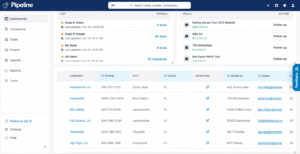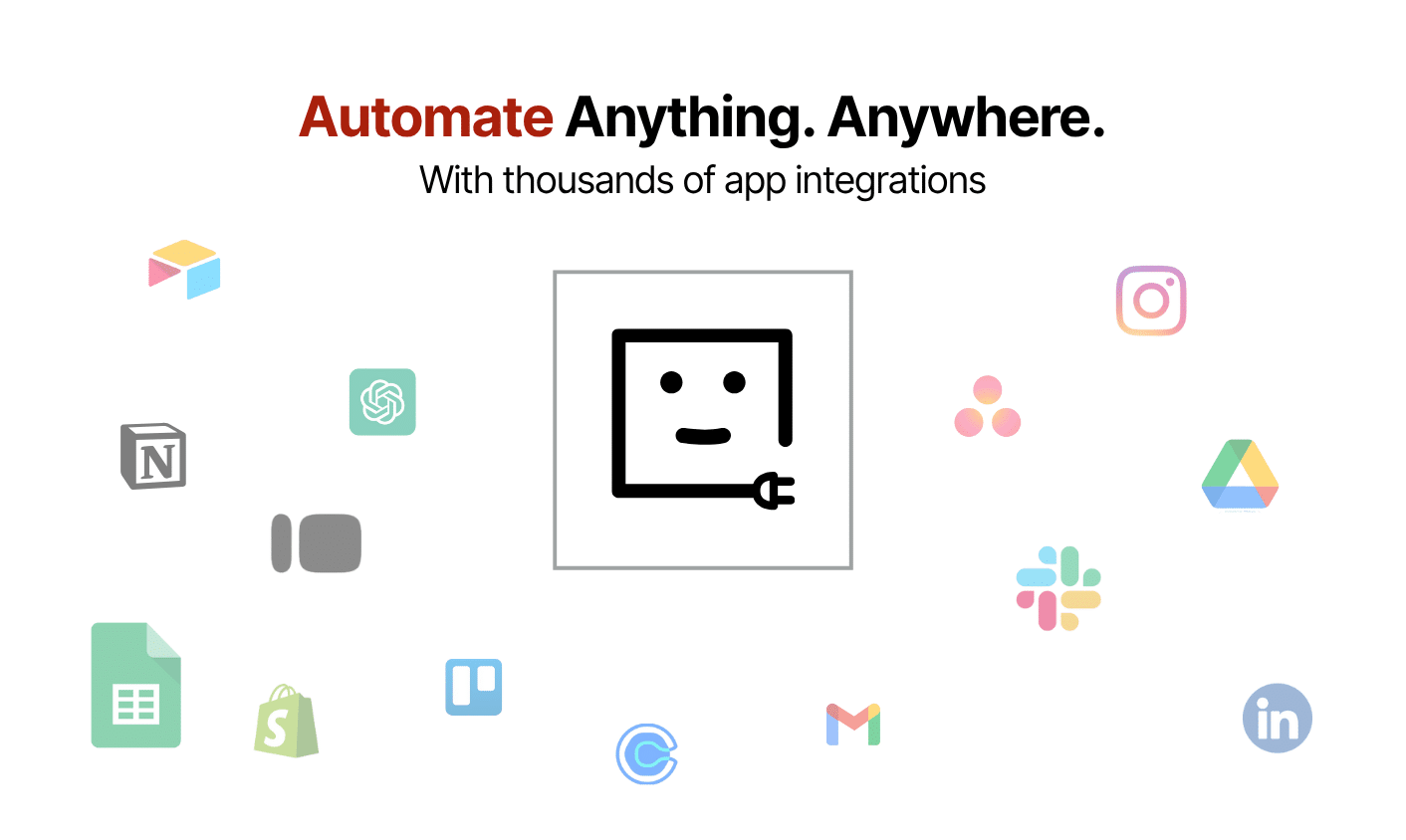A CRM dashboard that fits your sales process can make all the difference in tracking deals and boosting your sales team’s productivity. That’s why CRM dashboard customization is crucial—especially on Pipeline CRM, where you can design a dashboard tailored to your workflow and sales priorities.
In this tutorial, we’ll show you step by step how to customize your Pipeline CRM dashboard, covering everything from adding multiple sales pipelines to setting up personalized views, so you can quickly access the sales metrics that matter most.
What Can You Customize on a CRM Dashboard?
Custom CRM dashboards offer flexibility when selecting and arranging the information displayed on your CRM home screen. The available customization options, including the data types, number of elements, and size of dashboard tiles, will vary depending on your CRM provider.
Many CRM solutions also enable you to control who can view and edit specific dashboard elements by applying user permissions. This ensures that sensitive information is only accessible to authorized individuals.
Here are some common components you can include in a custom CRM dashboard:
- Sales performance overview: sales pipeline, deal lists, and sales metrics.
- Leads and customer data: lead status, customer segmentation, and new contacts.
- Tasks and activities: upcoming tasks and recent interactions.
- Reports and analytics: daily, weekly, or monthly reports on KPIs like win rate, churn rate, and campaign performance.
- Customer support: open tickets and resolved issues.
Related: are you in the logistics, real estate, or professional services industries? Learn about industry-relevant KPIs to track and accurately monitor your business growth.
Why Is a Custom CRM Dashboard Essential for Your Business?
Customizing your CRM dashboard is essential when managing multiple sales pipelines. Each pipeline often has distinct characteristics, including sales cycle length and key metrics, that require tailored monitoring.
For instance, a residential real estate brokerage might prioritize conversion rate, sales cycle length, and number of new listings on its dashboard due to residential properties’ shorter sales cycles. In contrast, a commercial property sales pipeline might benefit from metrics like deal value, average deal size, and revenue forecast, given the longer sales cycles associated with commercial buildings.
Top tip: when should you switch from a single to multiple sales pipeline? See 5 scenarios where implementing multiple sales pipelines can boost your sales productivity.
Beyond these pipeline-specific metrics, customizing your CRM dashboard offers several additional advantages, including:
Enhanced Focus and Efficiency
Display only the most important information, reducing distractions and promoting a focus on high-priority tasks.
Tailored Insights for Specific Roles
Provide sales reps, marketers, and customer service agents with the data they need. Managers can track KPIs, revenue, and team performance at a glance.
Instant Access to Critical Data
Track real-time updates on sales performance, customer interactions, and marketing campaigns, enabling quick and informed decision-making.
By tailoring your CRM dashboard, you can effectively organize data, streamline processes, and enhance team collaboration. This way, your sales team will have access to essential information in a format that supports their workflow and improves overall efficiency.
How to Customize Your Pipeline CRM Dashboard for Multiple Sales Pipelines
We will show you how to tailor your Pipeline CRM dashboard. For this example, we’ll modify it to host multiple sales pipelines.
Step 1: Create a New, Customized CRM Dashboard
From the Dashboard dropdown, select ‘Add To Dashboard.’ Give the new dashboard a title and select the first type of content you want to add to it.

With Pipeline CRM, you can add as many tiles as you like, such as the sales pipeline itself, deals slipping away, and the latest email interactions. You can also add custom content, such as list views, reports, and goals.
To track multiple sales pipelines efficiently, we recommend adding different dashboard elements based on the focus of each pipeline. For example:
- Short vs. long sales cycles: use monthly vs. quarterly sales reports and forecasting.
- Simple vs. complex sales cycles: focus on high-level vs. granular sales workflows.
- Free vs. paid sales pipeline products: highlight different sales steps, such as nurturing and qualification for free products vs. onboarding and post-sales support for paid products.

Step 2: Edit the New CRM Dashboard
Besides adding new dashboard elements, you can also resize, reposition, and filter them to further customize your Pipeline CRM dashboard.
To resize tiles, click and hold the icon in the lower right corner of the tile. While holding the icon, drag the tile to expand or decrease its size. There are no fixed size requirements for tiles, allowing you to customize their dimensions freely.

To reposition the tiles, click the icon in the upper left corner of the tile and drag and drop it into place. Dashboard filtering now exists on individual tiles, allowing you greater flexibility to curate a dashboard filtered by individual tiles.
To filter the tiles, click the users dropdown and select the users for whom you wish to see data. You can filter by users on the deals slipping away and the sales pipeline tiles.

Step 3: Save the New Tailored CRM Dashboard
After tweaking the dashboard, you must save the changes or save them as a new dashboard to keep the customization.

After saving a dashboard, you can ‘star’ it to indicate that it’s a key dashboard in your workflow. Simply click the star icon on the left of the dashboard name when the dashboard is open. All saved dashboards can be found in the dashboard dropdown.
Step 4: Share the New Customized CRM Dashboard With the Team
Once you’ve saved a dashboard, you’ll see the Share button in the upper right corner of the dashboard view. You can share the dashboard with specific individual users or globally across the entire account.

Note that when sharing a dashboard, the content will always follow the original visibility rules. For example, if you share a dashboard with a list of deals that the shared users don’t have access to, they will be able to view the dashboard but not the content on the included list.
You can also set a shared dashboard as the default dashboard for your account. This will not change the settings for any other users.

Watch this video for a complete tutorial on customizing your CRM dashboard on Pipeline CRM. You can also find detailed instructions in this written guide.
Focus on What Matters with Customized CRM Dashboards
Don’t let cluttered dashboards hinder your sales team’s productivity. By customizing your CRM dashboard to prioritize essential metrics and information, you can empower your team to close more deals, even when managing multiple sales pipelines.
We recommend adopting a customizable CRM like Pipeline CRM to streamline daily sales activities. Beyond dashboard personalization, Pipeline CRM offers features such as custom data fields, data validation, email drip workflows, and robust sales reporting.
Ready to experience the benefits of a customized CRM dashboard? Try Pipeline CRM for free for 14 days and see how it can transform your sales process.



